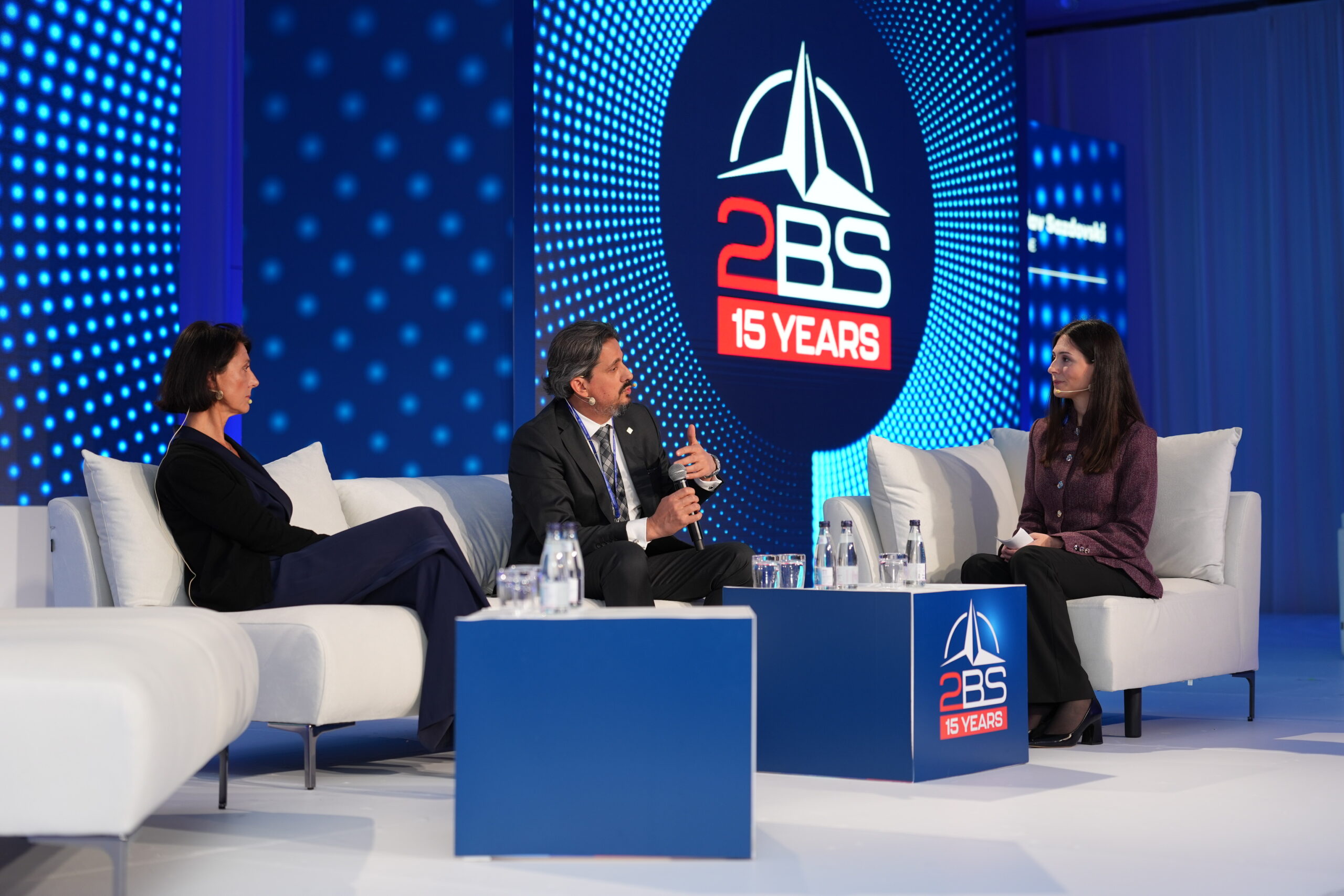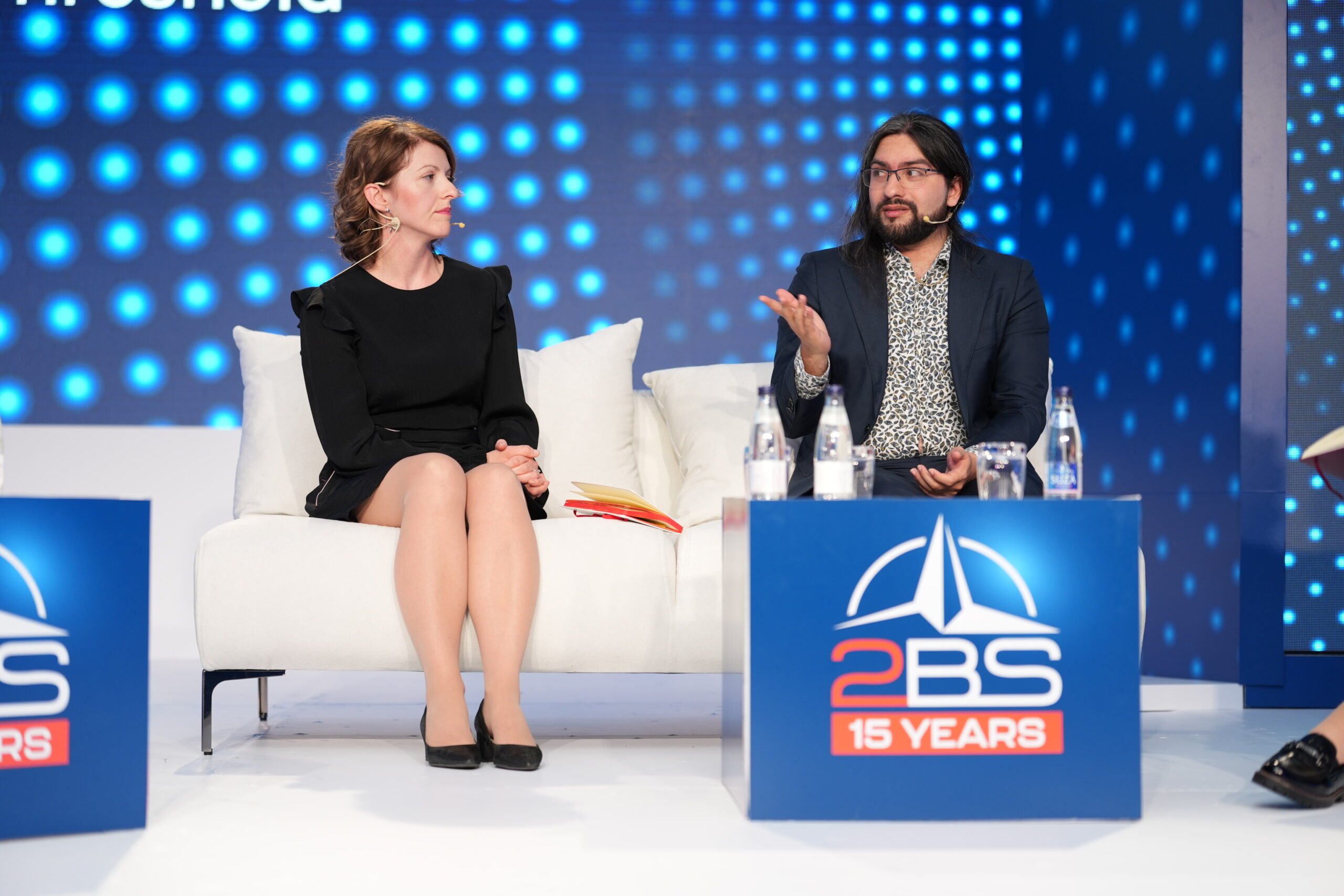China and Russia are adapting their approaches in the Western Balkan countries, operating below the threshold of open political and economic competition. While China expands its influence through donations to local governments, universities, media, and the civil sector, Russia relies on soft methods, including religious and cultural ties, aiming to maintain its presence and shape narratives in the region.
At 2BS Forum panels that addressed the malign influence of these countries, experts warned that both actors are using flexible strategies and hybrid approaches to shape societies and political processes in the Balkans.
Ana Krstinovska, president of ESTIMA, said that what China has been doing in the region and the way it has operated over the past five or ten years has constantly changed. She described the Chinese approach as a learning process with a very steep learning curve.
“I must emphasize adaptability and resilience. And why do I say that? Because China in the Western Balkans has become less welcome than it was five or ten years ago. This shift came under pressure from the United States, NATO, and the European Union, which became more aware or cautious of Chinese activities and passed those concerns on to the region. It was not an internal realization from within the region. Most governments, with the possible exceptions of Serbia and Republika Srpska, have become less open to Chinese economic projects, infrastructure, and investments,” Krstinovska said.
According to her, this trend has not extended to lower levels of society. China has managed to adapt and redirect its efforts toward sectors and segments of society that are not under direct government control.
“It started with local governments, which in democracies, unlike in China, are not directly accountable to the central government. China approached local municipalities through donations. With just 10,000 euros, they can establish city twinning agreements, which usually go unnoticed. In some cases, central governments are not even aware this is happening,” she explained.
She added that China then turned to academia and universities, which operate autonomously and are not always aware of the risks involved in cooperating with China.
“It also intensified engagement with journalists and media outlets by co-opting journalists, forming media partnerships, and in some cases, even putting some journalists on its payroll. Now, with the withdrawal of Voice of America and potentially Radio Free Europe, we expect an even greater wave of Chinese attempts to gain influence over the media. China is now directly engaging with civil society, something it previously overlooked, but has started to learn from the practices of Western democracies, which often involve civil society in achieving various goals,” Krstinovska said.
Saman Nazari, lead researcher at Alliance4Europe and coordinator of the Network for Countering Disinformation, said that China’s actions are more focused on strategic management and directing influence in a desired direction.
“To some extent, it is similar to how Russia in the past relied on certain sacred tools to gain access to resources and property abroad,” said Nazari.
He noted that China has been developing its military soft power capabilities for a long time, but what stands out most is the cultural aspect of its approach.
“It is about the specific way in which the Chinese shape and use information. They seek to identify individuals or groups that are sympathetic or at least neutral, and then incorporate them into their information structures by offering them benefits, visibility, travel opportunities, platforms, and influence, without directly engaging them in a formal capacity,” Nazari said.
Alliance Between the Russian and Serbian Orthodox Churches for Greater Influence in the Balkans
The topic of malign influence continued in the panel titled “Dedicated Influence: Russia’s Soft Power Through Covert Methods.”
Kadri Liik, senior policy fellow at the European Council on Foreign Relations, said that Russia has not always seen the Balkan countries as allies in anti-Western policies.
“I do not think Russia had major plans for the region. It does not dominate the republics it seeks to control, but it has always seen the Balkans as useful allies in anti-Western attitudes and actions,” said Liik.

She believes that Russia’s view has not significantly changed.
“This was the case even when Russia was undergoing its own transition. I remember conversations in Moscow in the mid-1990s with influential people who said about Slobodan Milošević, ‘Maybe we don’t like him, but he is our strategic ally.’ I did not understand it at the time because Russia itself was pursuing a pro-Western direction, promoting human rights and democracy. Yet they still saw him as someone worth supporting, despite his opposing stance,” she recalled.
As relations between Russia and the West deteriorated, she said, Russia began seeking closer ties with anti-Western actors.
“We can debate how much of this is a result of official Kremlin policy. Often, what we saw was improvisation, with individuals acting on their own initiative, including some actions here. That has always happened. Now, as the confrontation between Russia and the US becomes existential, the question is what comes next,” Liik said.
Miroslav Sazdovski, senior analyst at the Hybrid CoE, said the Western Balkans are being used as fertile ground to cultivate certain narratives and subjectivities promoted by Russia. He cited actions such as placing pig heads in front of mosques or writing anti-Muslim graffiti as part of a broader pattern of hybrid activity.
“This doesn’t create anything truly new, like general policy strategies. They take a Western strategy, policy, or activity, adapt it to their own framework, and then create their version. They’ve done this from the beginning, take something, reshape it, and tailor it to their goals. That’s the pattern. So when we talk about soft power, we must keep in mind that Russian soft power is not the same as what we’re used to in the West,” said Sazdovski.
He recalled that in 2009 Russia officially recognized the Russian Orthodox Church as the “guardian” of the Russian people.
“This connection helped fill the gap between the values Russia lost after the collapse of the Soviet Union and the need to restore a sense of a great and serious state with its own cultural and ideological space. The Russian Church became a source of ideology and spirituality, providing values that supported the regime’s goals,” he explained.
When it comes to the Balkans, he pointed out an obvious parallel.
“After the breakup of Yugoslavia, Serbia lost the power to impose its policies within the region where it once held dominant influence. These two elements, the desire to restore influence and the ideological and spiritual support of the church, created a strong link between the mechanisms used by these countries to pursue their goals,” said Sazdovski.
He further explained that Russia established a partnership with the Serbian Orthodox Church and promoted it as official policy, as it is more difficult for Russia to act directly in the region.
“Of course, they do act directly to some extent, but a smaller portion of the activities are Russian in origin. The main channel is the partnership with Orthodox churches in the region, which act as intermediaries for implementing policy at the regional level. And honestly, this influence is not limited to the church. It also extends to other types of institutional structures that support the spread of such policies,” Sazdovski concluded, adding that all of this has created a clear connection between the concepts of the ‘Russian world’ and the ‘Serbian world.'”
